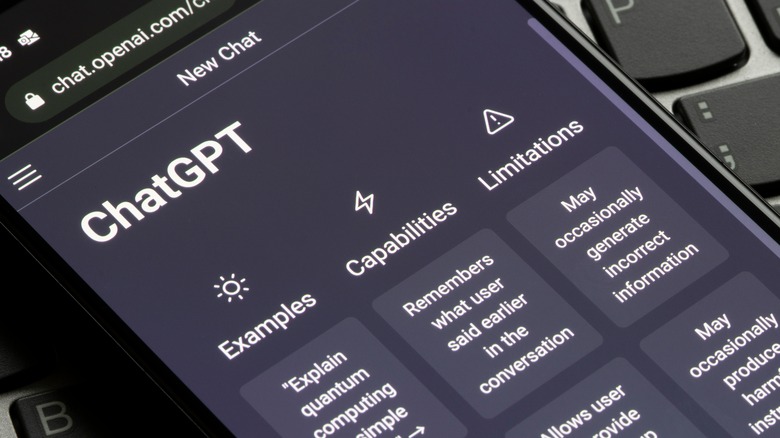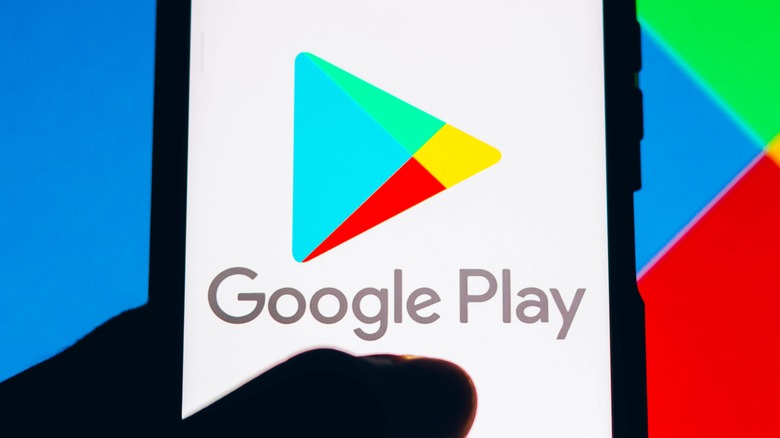Watch Out For These ChatGPT Scams On The App Store And Google Play
It's easy to get swept up in generative AI systems like ChatGPT. The frightening consideration, though, is that they may represent inexorable progress towards something rather dangerous. As OpenAI's Sam Altman put it in May 2023 (The Telegraph), "My worst fear is that we, the field, the technology, the industry, cause significant harm to the world ... If this technology goes wrong it can go quite wrong."
It's a little premature, fortunately, to forecast a post-apocalyptic future and the overthrow of humanity by machines. Nonetheless, though, there are lots of dangers heralded by the technology. Privacy and data concerns surround ChatGPT, and with its popularity came a rise in scammers trying to profit from the buzz surrounding it.
Frequent users of Google Play and the App Store may have seen some of these scams already. Here's how they work and what to watch out for. As always with such things, some efforts are rather insidious. An OpenAI account and access via OpenAI's website may be the safest route to take.
How do the scams work?
The most advanced version of the chatbot, ChatGPT-4, offers a subscription service. As OpenAI announced in February 2023, ChatGPT Plus is charged at a monthly premium of $20. There are ways to access the service for free (but they're rather limited). Armed with this information, certain shady apps on these services are trying to get their hands on that subscription cash (and potentially much more of it) under false pretenses.
Cybersecurity company Sophos regularly publishes X-Ops content, from its Advanced Threat Response Joint Task Force. In a special X-Ops report in May 2023, the firm warned of egregious fleeceware flooding these platforms. One example used was Chat GBT, an app that Google has since deleted from Google Play. It did not seem to use ChatGPT technology, allowed only three "trial" uses before trying to foist subscription models on users, and demanded five-star reviews.
Not all such apps are scams, of course. OpenAI offers a ChatGPT API to app creators, allowing for the implementation of the chatbot technology. The makers of the apps are then charged for tokens: 750 words, approximately, equals 1000 tokens, and the price for these tokens relates to the ChatGPT model being used. OpenAI states, for instance, that with the 32K context for ChatGPT-4, 1000 tokens costs $0.12 for completion and half that for a prompt. The gpt-3.5-turbo model, meanwhile, is priced at $0.0002 per 1000 tokens.
Protecting yourself from ChatGPT-inspired fleeceware
This token system will seemingly inevitably equate to inflated prices for third-party apps. By the very nature of being a third party, they will need to make money from the apps and pay money to/for ChatGPT, costs that will need to be passed on to consumers. With knowledge of OpenAI's token prices, though, these users will hopefully be armed with the knowledge needed to better understand what they're getting — or, conversely, not getting — for their money.
Much like spam emails promising recipients millions of dollars, some of these apps can be easily detected by some, through grammatical disasters or similar mistakes. Sadly, that isn't the point. Preying on the vulnerable is the MO here; on those who won't know the specific capabilities of ChatGPT-4 and so won't realize what the costs should be, which content they should and should not be locked out of in a trial version, and so on.
Intrusive ads, evasive mention of subscription fees, blocks to access, and limited functionality are all warning signs that a ChatGPT-accessing app isn't all it claims to be. A possible bandying-about of the "official" tag is also an enormous red flag. The App Store now has an official ChatGPT app, but as of May 2023, an Android equivalent is still to arrive.


